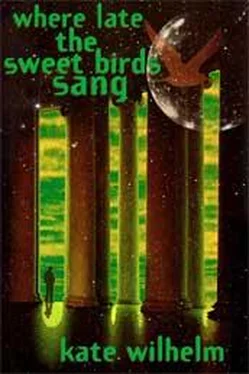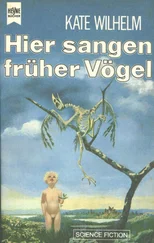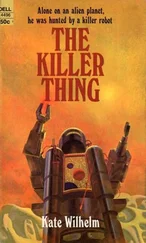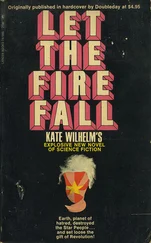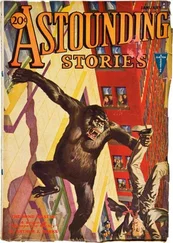There was no sign of life. Aspens grew in the fields, willows crowded the riverbanks; around the buildings the junipers and pines that had once been kept trimmed now grew high and almost hid the buildings. The rose hedge had become a thicket. He started and whirled around at a sudden shriek that sounded almost human. A dozen large birds launched themselves into the air and flew awkwardly toward the nearest copse. The chickens had gone wild, he thought in wonder. And the livestock? He could see no sign of cattle, but they would be in the woods, along the riverbanks, spreading throughout the region.
He walked on. Again he stopped. One of the dormitories was gone, no trace of it anywhere. A tornado, he thought, and he saw it now, a line of destruction that time had smoothed over, erased; a path where there were no buildings, no large trees, only the new growth of alders and aspens and grasses that would hold the ground until the spruces made it down the hillside, until the maple and oak seeds could be blown in to land on a hospitable site and take root. He followed the swath cut by the tornado, more certain as he moved that that was what had happened. But it couldn’t account for the death of the entire community. Not that alone. Then he saw the ruins of the mill and stopped.
The mill had been destroyed, and only the foundation and rusting machinery indicated that it had once stood there, the mechanical queen ant of the community, giving all the will to live, the energy, the means to sustain life.
The end would have come quickly without the mill, without the power. He didn’t go any closer to it. He bowed his head and stumbled down toward the river, not wanting to see anything else.
He traveled homeward more slowly than he had come, stopping often to look at the trees, the brilliant green carpet of mosses, and now and again he watched a glittering locust beat heavily through the sunlight, its iridescent wings appearing in flashes of color, then disappearing when it changed direction and didn’t catch the light exactly right. The locusts had come back; there were wasps again, and worms in the ground. He stopped at a mammoth white oak that overlooked a valley and thought about the changes the tree had witnessed silently. The leaves rustled over him, and he put his cheek against the tree for a moment, then went on.
Sometimes the loneliness had been almost too much, he thought, and always at those times he had found comfort in the woods, where he sought nothing human. He wondered if the others were still lonely; no one spoke of it any longer. He smiled as he thought of how the women had wept and screamed and straggled behind him, only to run to catch up once more.
At the top of the hill overlooking his valley he paused, then leaned against a silver maple to watch the activities below. Men and women worked in the fields — weeding the sugar cane, hoeing corn, picking beans. Others had torn down one wall of the bathhouse and were busy expanding the facilities; more of the fired-clay tiles were being put in, fitted closely around the great fireplace in order to have a constant supply of hot water. Some of the older children were doing something to the water wheel — he couldn’t tell what.
A dozen or more children were picking blackberries along the edges of the fields. They wore long-sleeved shirts and long pants, so they wouldn’t become too scratched. They finished, put down their baskets, and began to pull off the confining clothes. Then, naked, nut-brown, laughing, they started toward the settlement. No two of them were alike.
Five thousand years of savagery, Barry had believed, but that was time measured on the steps of the pyramid, not by those who lived any part of it. Mark had led his people into a timeless period, where the recurring seasons and the cycles of the heavens and of life, birth, and death marked their days. Now the joys of men and women, and their agonies, were private affairs that would come and go without a trace. In the timeless period life became the goal, not the re-creation of the past or the elaborate structuring of the future. The fan of possibilities had almost closed, but was opening once more, and each new child widened its spread. More than that couldn’t be asked.
Four canoes came into view on the river; the boys and girls had been out netting fish. Now they raced one another home. Soon, Mark knew, some of them would ask the community’s permission to take the canoes on a trip of exploration, not searching for anything in particular, but out of curiosity about their world. The older adults would be fearful, unwilling for them to leave, but Mark would grant permission, and even if he didn’t, they would go. They had to.
Mark pushed himself away from the tree and started down the hill, impatient suddenly to be home again. He was greeted by Linda, who held out her hand to him. She was nineteen, large with child, his child.
“I’m glad you’re home,” Linda said softly. “It has been lonesome.”
“And you’re not lonely now?” he asked, putting his arm about her shoulders.
“No.”
The naked children saw him then and raced toward him, laughing, talking excitedly. Their hands and lips were stained with blackberries. He tightened his grip on Linda’s shoulder. She looked at him questioningly, and he loosened his grasp, afraid he had hurt her.
“Why are you smiling like that?” she asked.
“Because I’m happy to be home. I was lonely too,” he said, and it was part of the truth, and the other part he knew he could not explain to her. Because all the children were different.
